I recently ran a stall at The MacLennan Gathering in Inverness, around a quarter of those attending had travelled from New Zealand and proudly claimed Scottish ancestry. New Zealand is place that couldn’t be further away from Scotland on the map but it’s inhabitants make up a good percentage of The Scottish Diaspora. So inspired by the New Zealand MacLennans I am writing this blog to research The Scots of New Zealand.
Looking at a map of New Zealand you can see many Scottish place names. I am sat writing this blog in Leith, Edinburgh I know that on the other side of the word in New Zealand there is another Edinburgh – and another Leith. Dunedin (Dùn Èideann is Gaelic for Edinburgh and is known as the Edinburgh of the south) is the second largest city In the South Island of New Zealand. Dunedin unsurprisingly is twinned with my Edinburgh and there is even a Princes Street!
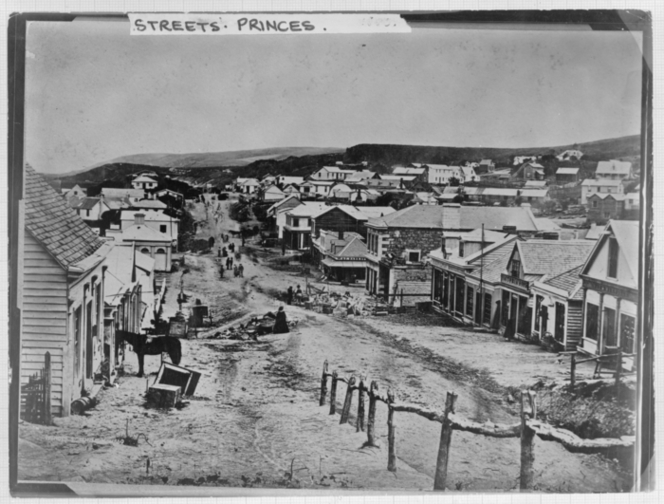
Four of New Zealand’s Prime Ministers were born in Scotland, there are Highland Games, Burns Suppers, Ceilidhs, Bagpipes, they celebrate Hogmanay and hold a Tartan Day. There have been two battalions of New Zealand Scottish affiliated to the Black Watch.
The Dunedin Tartan
The Dunedin Tartan tells the story of these ties – it’s red signifies the blood ties that Scottish settlers had to leave behind and the green symbolising new pastures- hope for the future.
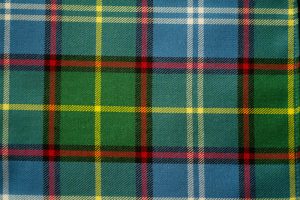
The History of Migration from Scotland to New Zealand

The first Scots to set foot in New Zealand were among the crew of Captain Cook’s ship Endeavour in 1769. Here Cook mapped the complete New Zealand coastline.
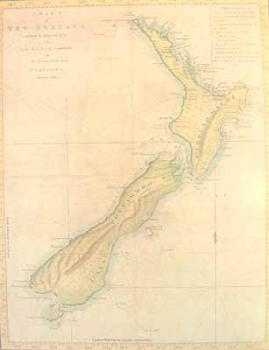
In 1826 the first colonisation of New Zealand from Great Britain was attempted, two shiploads of immigrants arrived. However, many found conditions in the new country too harsh and resettled in New South Wales, leaving only a few hardy types behind. It wasn’t until 1840 before the British (including the Scots) began to emigrate to New Zealand in any significant numbers, after the Treaty of Waitangi, whereby Maori chiefs ceded overlordship to Queen Victoria in return for protection of their lands and rights. The trend of large scale migration from Scotland to New Zealand ended in the 1930s when the world trade depression saw many emigrants returning home.
Why did Scots want to emigrate to New Zealand?
Life in 19th Century Scotland was hard for the average Scot. It was a period of profound economic and social change, a shift from agriculture to industry together with a split Church – life must have been tough and uncertain.
This was the peak of the Highland Clearances (1840s and early 1850s) – Highland Gaels were forcibly evicted from their land, the migrant Highlanders joined those from Ireland and crowded into the cities looking for work and accommodation. Statistics show the level of growth – in 1851 in the ten principal Scottish towns 47% of their inhabitants had been born in them. In places like Greenock in 1801 Highlanders accounted for 29% of the population. But their numbers were soon to be dwarfed by the influx of Irish immigrants, ill health and disease were accelerated by the rapid increase in the population.
This graph shows the regions of Scotland the Scots migrated from.
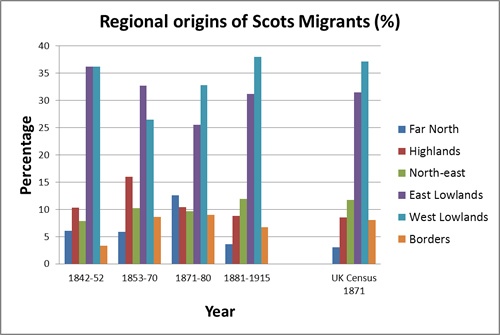
The Act of the Union in 1770 meant Scots gained the freedom of the British Empire. New Zealand became a British territory in 1840 and in the following decades immigration was the main source of New Zealand’s population growth.
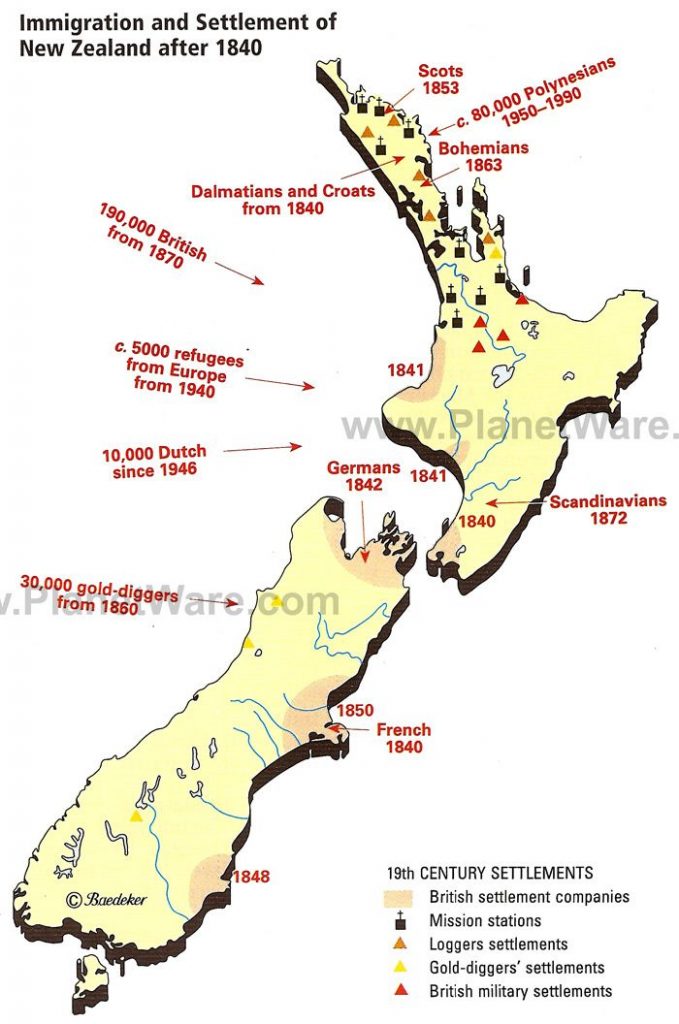
Emigration was perceived by trade unions and other voluntary groups as a practical solution to unemployment and economic depression. The Emigration Act of 1851, however, made emigration more accessible to the poorest, with the Highlands and Islands Emigration Society set up to manage the process of resettlement.
For the impoverished Scot Australia and New Zealand were the lands of opportunity. More than eighty-five thousand emigrants were granted free passage to New Zealand.

The first Scottish immigrants were extremely successful and created opportunities, by the 20th century, the skilled worker was the largest category among social groups who emigrated from Scotland. In 1912 and 1913, 47% of adult male emigrants from Scotland described themselves as skilled, compared with 36% of those from England and Wales. Only 29% categorised themselves as labourers. It is incorrect to think that all the emigrants from Scotland were refugees from The Highland Clearances. Unlike places like Canada the The Scottish Gaelic language and culture did not fare well. Turakina in Wanganui was originally settled by Gaelic speakers but it didn’t survive (apart from the highland games).
New Zealand was also never a place for convict resettlement.
Settling in a new land

The journey to Australasia by boat would have taken around two to two and a half months. Remember these were whole families traveling over to start a new life – this was quite a journey.
Steam boats were to take a far shorter time.
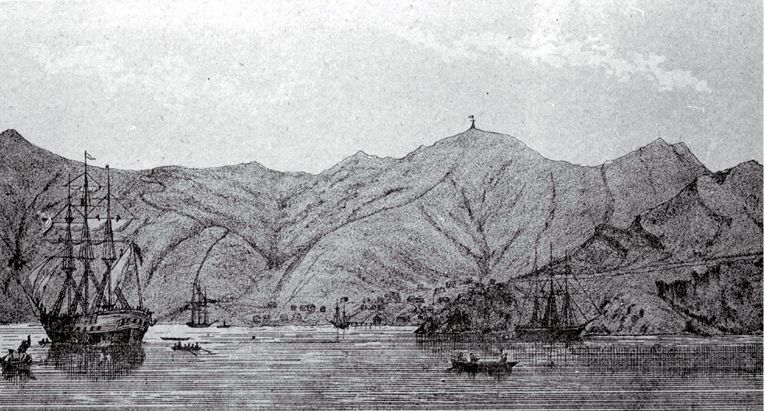
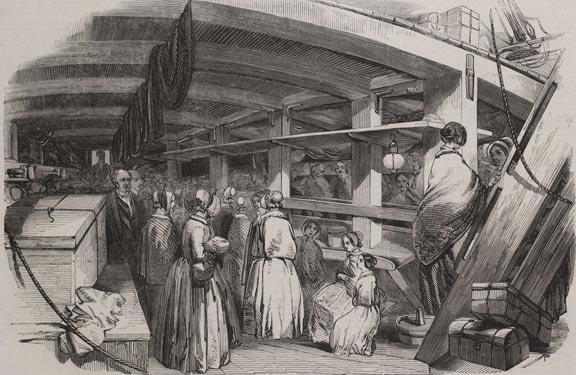
The award winning film The Piano follows the life of a 19th Century Scottish Woman and her daughter as travel to New Zealand to start a new life.
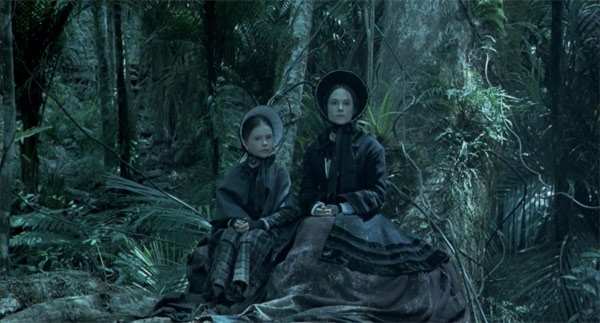
On landing at Port Chalmers on March 23 1848, one passenger on the John Wickliffe, the first ship to carry Scottish settlers to the South Island of New Zealand, wrote in his diary: “All seemed pleased and called it a goodly land – Port Chalmers and around is truly beautiful – rich in scenery – its slopes and shores are fertile, and wooded to the water’s edge.”
When the people arrived they often had to stay in large tents. This painting by Nelson shows the tents erected for the New Zealand Company officials and mechanics who arrived in November 1841 to survey and build accommodation for the early settlers.

Watercolour by Charles Heaphy
Large numbers of Scots came in the 1840s, settling mainly in Auckland and Wellington. An influx of Otago settlers arrived after 1848, and in the 1860s, gold miners flooded in. Assistance schemes enticed more to Otago and Canterbury in the 1870s. Between the world wars there was another surge. Census estimates suggest that the Scots made up approximately 20 per cent of migrants to New Zealand between 1840 and 1950.
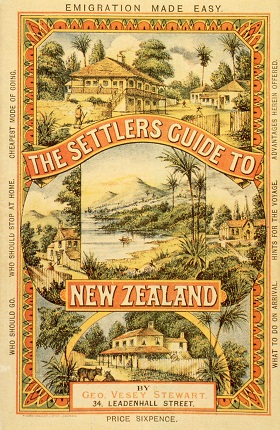
This small booklet went on sale in 1886 – some helpful tips for new settlers.
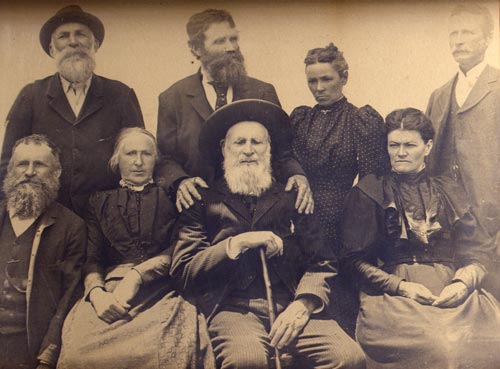
The Gold Rush
Scots spread throughout the country, though many favoured Otago and Southland. Luckily gold was discovered in Otago in 1861 which boosted the wealth of the area and it’s Scottish inhabitants and also cemented connections with Dunedin (The capital of Otago), Edinburgh and The Clyde.
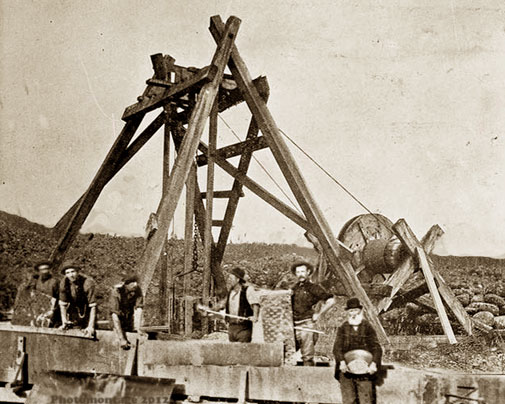
The Legend of James McKenzie
It was a Scot who was to become one New Zealand’s most enduring folk heroes. Mckenzie emigrated to Australia around 1849, arriving in Melbourne where he purchased a team of bullocks for carrying goods to the gold-diggings. He managed to save £1,000 and moved to New Zealand, arriving at Nelson. McKenzie worked as a drover in Canterbury before moving on to Otago where he applied for a land grant in the Mataura district.
In March 1855, Mckenzie was caught stealing 1,000 sheep from Levels Station, north of Timaru. After escaping his accusers, he walked 160 kilometres (100 mi) to Lyttelton, where he was caught by the police. He was subsequently sentenced to five years hard labour after being found guilty by a Lyttelton Supreme Court jury in April 1855.
Mckenzie escaped from prison on at least two occasions, neither escape lasting more than three days, after which he was placed in irons and closely watched. In September 1855, the Christchurch resident magistrate investigated Mckenzie’s case and found serious flaws in the police inquiry and trial. Mckenzie was given an unconditional pardon on 11 January 1856 after spending only nine months in prison.
Rev Norman McLeod – The man who’s flock of 800 followed him from Scotland
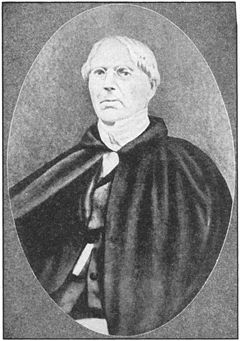
Norman McLeod was born at Port na Chreadhaich, Clachtoll, Assynt in 1780. Because of his religious beliefs and his inclination to air them he was frequently in trouble with the church – and such was his persecution by the church, emigration seemed the only path open to him. On July 1817 he left his wife and children in Ullapool and sailed on the ‘Frances Ann’ to Pictou, Nova Scotia. His talents as both sailor and preacher were utilised on the voyage and soon he had gained a faithful following that remained with him after reaching land. He was later joined in Pictou by his family and friends from Assynt.
Highlanders in Ohio who had heard about his preaching invited him to be their minister and, with his flock willing to follow him, an 18 ton schooner was built to ferry them. They reached as far as St Ann’s Harbour where they found fish in abundance and land so fertile that they decided to settle there. Within a few years a school and church was built, Norman was ordained minister and by 1826 he was their teacher, minister and magistrate. He ran the community with a religious zeal suffering no infringement of his rules but they were relatively happy and prospered for twenty five years until disaster struck in the form of a ruined harvest. The settlement was facing starvation but a letter from Norman’s son Donald who had migrated to Australia previously set Norman’s mind on moving again. He persuaded many of his followers to make the move with him and in 1851, with 140 people on board, the first ship set sail for Adelaide. But that town was not what they expected nor had wished for, so in 1853 they set sail again and landed in New Zealand establishing a settlement in Waipu.
All-in-all six ships and 800 people followed Norman and his descendants are still in Waipu to this day.
Most Common Surnames in New Zealand
Just looking at the most common surnames in New Zealand you can see the dominance of the Scots. Here are a few:
Smith: comes from the North of England and Scotland, Smith is considered a sept of Clan MacFarlane.
Wilson, from both England and Scotland. In Scotland Wilson is considered a sept of Clan Gunn and Clan MacFarlane
Brown: a Scottish Clan from East Lothian and Tweeddale
Taylor: a name from the British Isles, in Scotland the Taylor family came from Montrose
Anderson: A Clan name from Badenoch, Scotland
Thompson: A name from most likely the Scottish Borders
Campbell: A Scottish Clan name from Argyll
Johnson: Danish, English, Scottish and Swedish origin – on Scotland it’s more commonly spelt Johnstone
Scott: Scottish Clan name from the Borders and Fife
Reid: Old English name and in Scotland Reid is considered a Sept of Clan Robertson
Stewart: A clan name from Renfrewshire, Teviotdale and Lauderdale, Scotland
Murray: A clan name from Morayshire, Scotland
Armstrong: A clan name from the Scottish Borders
The top surnames for New Zealand, Auckland, Wellington and Christchurch are:
| Top surnames | 1913 (29808) | 1963 (64955) | 1988 (57999) | 2003 (57946) | 2013 (58297) | ||||||
| 1 | Smith | Smith | Smith | Smith | Smith | ||||||
| 2 | Wilson | Wilson | Williams | Williams | Wilson | ||||||
| 3 | Brown | Brown | Wilson | Wilson | Williams | ||||||
| 4 | Taylor | Williams | Taylor | Brown | Brown | ||||||
| 5 | Jones | Taylor | Brown | Taylor | Taylor | ||||||
| 6 | Williams | Anderson | Jones | Jones | Jones | ||||||
| 7 | Anderson | Jones | Thompson | Thompson | Singh | ||||||
| 8 | Thompson | Thompson | Walker | Anderson | Wang | ||||||
| 9 | Campbell | Scott | Anderson | Lee | Anderson | ||||||
| 10 | Johnson | Walker | King | Harris | Li | ||||||
| 11 | King | Harris | White | Edwards | Thompson | ||||||
| 12 | Clark | King | Campbell | King | Walker | ||||||
| 13 | Scott | Martin | Johnson | Walker | Lee | ||||||
| 14 | Thomas | Johnson | Martin | Martin | Chen | ||||||
| 15 | Walker | Clark | Scott | Singh | Patel | ||||||
| 16 | Martin | Young | Harris | Campbell | Zhang | ||||||
| 17 | Stewart | Campbell | Thomas | Johnson | Martin | ||||||
| 18 | Wright | Stewart | Hall | Robinson | King | ||||||
| 19 | Thomson | Robinson | Stewart | Thomas | Harris | ||||||
| 20 | White | White | Clark | White | Kumar | ||||||
| Top surnames (place birth “Auckland”) | 1913 (786) |
1963 (6259) | 1988 (9758) | 2003 (11668) | 2013 (11760) | ||||||
| 1 | Jones | Smith | Smith | Lee | Wang | ||||||
| 2 | Smith | Williams | Williams | Smith | Li | ||||||
| 3 | Taylor | Taylor | Taylor | Williams | Chen | ||||||
| 4 | Wilson | Brown | Jones | Brown | Liu | ||||||
| 5 | Reid | Harris | Wilson | Chen | Smith | ||||||
| 6 | Thompson | Wilson | Brown | Li | Zhang | ||||||
| 7 | Brown | Jones | King | Patel | Lee | ||||||
| 8 | Edwards | Anderson | Patel | Zhang | Patel | ||||||
| 9 | Mills | Clark | Thompson | Kim | Huang | ||||||
| 10 | Murray | Thompson | Walker | Wang | Singh | ||||||
| 11 | Phillips | Walker | Anderson | Jones | Taylor | ||||||
| 12 | Shepherd | Johnson | Stewart | Wilson | Wilson | ||||||
| 13 | Stewart | Martin | Thomas | Huang | Jones | ||||||
| 14 | Armstrong | Scott | Harris | Hall | Brown | ||||||
| 15 | Bennett | Campbell | Johnson | Taylor | Wu | ||||||
| 16 | Carter | Matthews | Shaw | Liu | Yang | ||||||
| 17 | Donovan | Watson | Green | Campbell | Wong | ||||||
| 18 | Greenwood | Davis | Simpson | Walker | Xu | ||||||
| 19 | Hodgson | Mitchell | Bell | King | Kim | ||||||
| 20 | Hogan | White | Martin | Lin | Zhou | ||||||
| Top surnames (place birth “Wellington”) | 1913 (1807) | 1963 (3781) | 1988 (3394) | 2003 (3739) | 2013 (3455) |
||||||
| 1 | Smith | Smith | Smith | Smith | Smith | ||||||
| 2 | Brown | Taylor | Thompson | Williams | Williams | ||||||
| 3 | Williams | Williams | Wilson | Brown | Patel | ||||||
| 4 | King | Robertson | Williams | Jones | Brown | ||||||
| 5 | Taylor | Wilson | Campbell | Taylor | Jones | ||||||
| 6 | Wilson | Anderson | Brown | King | Taylor | ||||||
| 7 | Reid | Campbell | Jones | Wilson | Wilson | ||||||
| 8 | Richardson | Robinson | Johnson | Edwards | Robinson | ||||||
| 9 | Robertson | Turner | Martin | Campbell | Johnson | ||||||
| 10 | Ward | Brown | Patel | Gray | Anderson | ||||||
| 11 | Collins | King | Anderson | Ferguson | Campbell | ||||||
| 12 | Hill | Thompson | Cook | Johnson | Harris | ||||||
| 13 | Johnson | Young | Ward | Martin | Johnston | ||||||
| 14 | Jones | Lee | Clarke | Simpson | Mitchell | ||||||
| 15 | Parker | Jones | Henderson | Davis | Thomson | ||||||
| 16 | Stewart | Burns | James | Henderson | White | ||||||
| 17 | Bennett | Clark | Stewart | Scott | Young | ||||||
| 18 | Campbell | Cook | Tan | Ward | Baker | ||||||
| 19 | Holmes | Hall | Taylor | White | Collins | ||||||
| 20 | Murphy | Harris | Thomas | Wright | Fraser | ||||||
| Top surnames (place birth “Christchurch”) | 1913 (536) |
1963 (4715) | 1988 (3730) | 2003 (5599) | 2013 (5628) |
||||||
| 1 | Smith | Smith | Smith | Smith | Smith | ||||||
| 2 | Jones | Wilson | Wilson | Wilson | Taylor | ||||||
| 3 | Rutherford | Williams | Williams | Brown | Brown | ||||||
| 4 | Taylor | Brown | Taylor | Williams | Jones | ||||||
| 5 | Wilson | Taylor | Brown | Taylor | Wilson | ||||||
| 6 | Wright | Anderson | Campbell | Thomas | Williams | ||||||
| 7 | Cooper | Jones | Thomas | Scott | King | ||||||
| 8 | Cox | Scott | Wright | Moore | Li | ||||||
| 9 | Duncan | Wright | Anderson | Harris | Harris | ||||||
| 10 | Hart | Robinson | Harris | Anderson | Mitchell | ||||||
| 11 | Henderson | Clark | Jones | Jones | Robinson | ||||||
| 12 | Roberts | Roberts | Moore | Lee | Scott | ||||||
| 13 | Thomas | Thompson | Robertson | Robertson | Zhang | ||||||
| 14 | Watson | Walker | Scott | Watson | Thompson | ||||||
| 15 | Williams | King | Ward | Hill | Young | ||||||
| 16 | Adams | Moore | King | Johnson | Lee | ||||||
| 17 | Allan | Watson | McDonald | Stewart | Wang | ||||||
| 18 | Allard | Young | Mitchell | Thompson | Johnson | ||||||
| 19 | Bennett | Gray | Walker | Ward | Martin | ||||||
| 20 | Boone | Fraser | Davies | Young | Thomson | ||||||
If you have are a New Zealander with Scottish Ancestry please tell us your story in the comments.
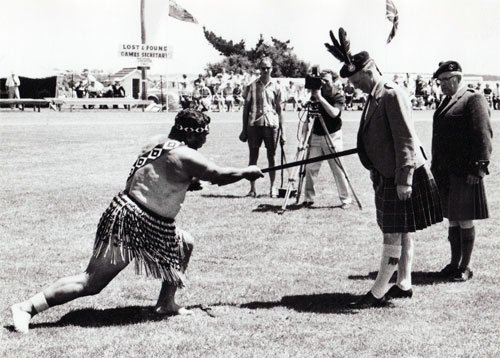
Further Information and Sources
Rosalind R. McLean PHD
The Scots of New Zealand
Far Off In Sunlit Places: Jim Hewitson
Christchurch Passanger Lists: https://my.christchurchcitylibraries.com/passenger-lists/
Archives New Zealand: http://www.archives.govt.nz
https://natlib.govt.nz/schools/topics/58eec4de8d2a4e4a06014674/immigration-to-new-zealand
http://www.whodoyouthinkyouaremagazine.com/tutorials/overseas/new-zealand-ancestors

Great history and culture share here, thanks!
HI, my name is Peter Crawford, and I am the outgoing secretary of the Clan Crawford Association. My Scottish line is a ‘direct’ line from Duncan Crawford of Dromsoy. Our Assoication’s web site also has a significant amount of content on the diaspora to NZ, Aust, Canada and America. (http://www.clancrawfordassoc.org/diaspora)
BUT…we’re always looking for content to improve our subject matter. Can we please collaboraate with you on this?
Peter E Crawford
Clan Crawford Association
New Zealand
I think you will find that the painting titled “The Emigrants” was painted by William Allsworth. The original is on display at the National Museum of New Zealand – Te Papa in Wellington New Zealand.
I believe it was painted c. 1844.
I visited Te Papa this last week and saw the original and purchased a print of the original.
I’m a descendant of Scots on all sides of my family. My mother was a Wishart, and came to Dunedin from Edinburgh as a war bride in 1946. My father’s family are McArthurs who came from Fife about 1860/61 to Dunedin. His mother’s family were Reekies who also came to Dunedin from Fife. Still trying to find out which ships these families arrived on. My elder son has been working on family trees and we have a tree full of Scottish names: Sinclair, Cameron, Morrison etc etc.
Fascinating thank you. You would have met my family from NZ. I will be in Scotland in a few days, can’t wait!!
I am a 4th generation New Zealander, of Scottish descent. My fathers family of McKerchar’s arrived in Dunedin on the Strathallan, in January 1858. Our wee clan in New Zealand includes as many McDonald’s as McKerchars these days. We now have 8 generations from those first two, and their six children. They came to New Zeland from Kenmore.
I was just playing around and was
shocked when the actual articles came up.
I am a Campbell and I have sisters so no one to carry the name
There were nine Grandsons but they weren’t
Into that stuff until papa passed.
Anything about them would be so very
appreciated
Info I have is Frank Marve Campbell Jr.
DOB 7/17/1916
Thank you any information will be highly recharged
To nine happy Grandsons who will know their family history.
I descend from clan Erskine. .My paternal 2nd great grandfather Major Erskine Thomas Erskine was the son of Thomas Erskine 1st Baron of Restmorel and Sarah Buck http://thepeerage.com/p18684.htm#i186837. I am fortunate that I am able to take trace the line back to 1200 and it includes many Scottish surnames i.e Bellenden, Campbell, Crichton, Douglas, Farifax, Hope, Keith Lindsay, Menteith/Mar, Murray, Stewart, Steuart, Stuart etc. My paternal line also include Sutherland from Latheron, Cathiness, Lamond from Kirkmichael, Perthshire and McGregor from Braemar, Aberdeenshire. This has proved to be challenging to research when Sutherland were marrying Sutherland and McGregors/McGrigors were likely to have used another surname in the 1600’s – possibly Walker. My ancestry is a passion and I have a very comprehensive family tree : )
My grandmother was a Chisholm and very proud of her scottish heritage, to this day her son, my uncle Tony, is very involved in Scottish culture in NZ. Nanna was born between Dunedin and Invercargill and my mum and uncle were raised in Christchurch and Blenheim. My nannas red hair is a testimont to her scottish roots, which my kids have all inherited in varying shades. I live in Australia – by my front door is a framed cross stitch of a sheep with the Chisholm tartan instead of wool a done by my nanna who is now deceased.
Hi , my mothers line connected back to the Menzies Clan , trying to find the family connection to the two menzies that were captured by John Gow the pirate, would love to place them into the family tree if only i could get more information on their family ties ,any help would greatly be appreciated—-RAY DAWE , Her line came through Dunedin .
Born in NZ and a direct descendant of Henry Monteith of Carstairs 1765-1848, also Provost of Glasgow. His father was James Monteith, the founding father of the weaving trade in Anderston, Glasgow. I wonder if we are connected to the ancient Earls of Menteith as from what I understand it was Walter Stewart’s son John who took the name De Menteith which evolved to Monteith over time.
I am a fourth generation New Zealander currently living in Canada. On my mother’s side of the family there are Browns, Lamonts and Stewarts and on my father’s side of the family there are Forbeses and Stuarts – the rest on both sides were just English and one lone African about six generations back.. In my wife’s family are Taylors and Camerons along with Italian, Spanish, English, French, West African and Miskito ancestors. She is from Colombia and between us we represent two quite different facets of the Scottish diaspora. Our son is growing more interested in this kaleidoscopic heritage he has.
I am a fifth generation New Zealander from Stevensons and Chalmers (Glasgow) Fourth generation from Lindsays (Kincardine) Sutherlands (Caithness) Clelands and Duncans (Ulster Scots) Mollisons (Kincardine) Beggs (Aberdeenshire).
KIAORA Anderson Jonathan David. Family nane arrived in nz via north Canada Hudson bay shipping company Exs Orkney Islands. Landed on the Malborough Albion shipping company Bluff/Campbeltown. Mother is Clan Campbell of Argyll of the once police cheif of dunedin. SCOTS RUN DEEP IN THE SOUTH.
This is wonderful! Thank you so much for writing this up, it’s gives us a real insight to my partner’s Great Great Grandparent’s journey to NZ in 1840 on The Blenheim. William and Marion (Mary-ann depending on what documents you read), settled in Wellington and opened The Miller’s Commercial Hotel in Willis Street, Wellington. I’ve been consumed with their history and even located their burial place and tombstone, my partner was quite gobsmacked at it all. I will be reading more of your research and writings.
I am first generation Scot on my mother’s side. She emigrated with her mother, step-father (James Wishart) and her brother (Bob) in 1947. Her full name was Betty Clement Faulds Barr. She was born in Glasgow May 16, 1921 and died in Auckland 9 June, 2017. Barr being her father’s name and the other names presumably from sides of the family. My maternal grandmother was Eliza (‘Bet’) Hair. My mother’s father was Alexander Barr (1 of 12 children) who died between WW1 & 2. I believe the family lived in Muirkirk for a time and then moved to Troon, Ayrshire after their father died.
Awesome keeping the clans connected – i too am a descendant from my forebear Thomas Mclean who left London in 1825, arriving in New Zealand in 1826. Thomas settled in the Bay of Islands along with 3 of his shipmates, Nesbit, Nimmo and Gillies.Islands
Hi. Looking for descendants of the White family who came to NZ I’m guessing early 1900’s as ten pound scots. My maternal grandfather James Kenneth White told stories from ponsonby including the local Hakka. He moved to Australia again guessing 1930’s. He then had little to no contact with family in NZ far as I know. Thanks in advance for any insights.